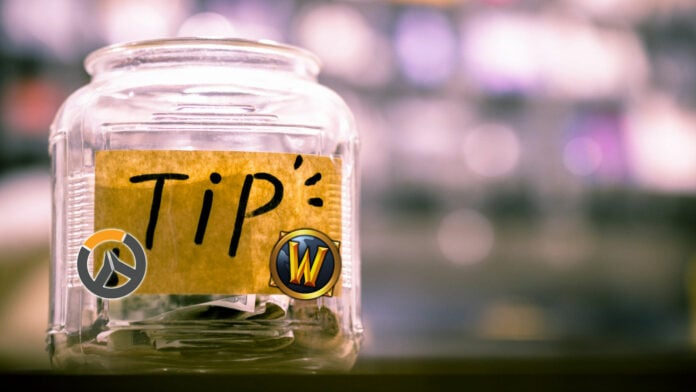Ex-Blizzard president Mike Ybarra says he wants to introduce tipping culture into games, despite recognising that it’s an unpopular idea. As a gamer, I share his sentiment of wanting to give back. As a European, however, it sounds like my worst nightmare.
“I’ve thought about this idea for a while, as a player, since I’ve been diving into single-player games lately,” Ybarra says on X (via VG247). “When I beat a game, there are some that just leave me in awe of how amazing the experience was. At the end of the game, I’ve often thought ‘I wish I could give these folks another $10 or $20 because it was worth more than my initial $70, and they didn’t try to nickel and dime me every second’.
“Games like [Horizon Zero Dawn, God of War, Red Dead Redemption 2, Baldur’s Gate 3], Elden Ring, etc. I know $70 is already a lot, but it’s an option at the end of the game I wish I had at times. Some games are that special. I know most will dislike this idea… I realise we are tired of ‘tipping’ in everything else – but I view this as different from a pressure-to-tip type scenario many face and give feedback on.”
No matter what you think of developer salaries, it’s not enough for what they put up with. Unfair working conditions with crunch periods, insurmountable pressure from executives, and abuse from the public mean they deserve so much more, in my opinion. However, tips aren’t the solution; they’re part of the problem.
Tipping culture is already a contentious point in the hospitality sector. Some servers earn more in a shift than I do in a week, but the base wage is so low that this isn’t consistent. It gives companies the ability to underpay staff and put the onus on customers instead.
We’ve entered a state of tipping fatigue as more companies in alternate sectors adopt the gratuity practice. Alongside rampant inflation, this leaves the average Joe broke. I’ve heard many US servers say you shouldn’t go out if you can’t afford it, but if no one goes out, this causes a bigger problem.
Granted, Ybarra addresses the difference in pressure. The option to give back after you complete a game doesn’t carry the same obligations as a transaction. That said, without transparency, there are simply too many questions.
What of service games that feature no end? Do they demand regular tips or even subscriptions? Would they even reach the developers we want to support without being snapped up by publishers like Microsoft? Could it prompt executives to lower developer salaries to save their bottom line? After all, that’s what every other industry has done by passing the cost onto customers. Considering a game already costs $70 / £70 as it is, this asks a lot of blind faith.
In this scenario, there are simply better ideas for supporting the developers you love. You can purchase games in the rest of their catalogue, even if one doesn’t particularly appeal. You can gift the game you love to other people, whether that’s full price or waiting for a sale. There are even ways to support that aren’t monetary, such as engaging in their social media posts. If anything, your time spent talking about their product is worth more than a $10 tip.


